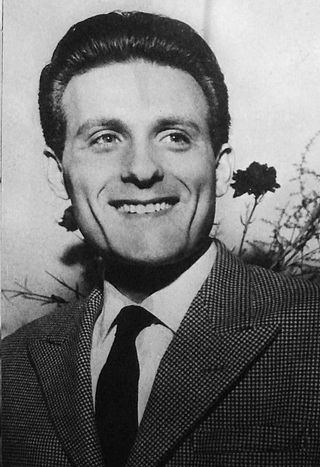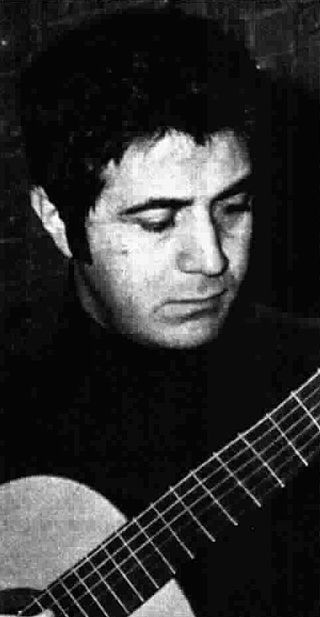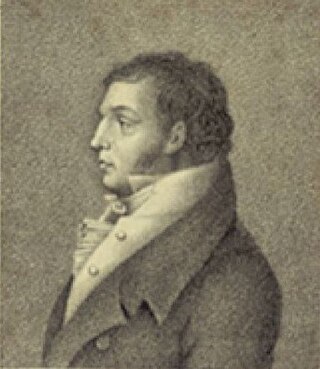Roberto De Simone | |
|---|---|
 De Simone with Odette Nicoletti (1989) | |
| Born | 25 August 1933 (age 90) Naples, Italy |
Roberto De Simone (born 25 August 1933) is an Italian stage director, playwright, composer and ethnomusicologist.
Roberto De Simone | |
|---|---|
 De Simone with Odette Nicoletti (1989) | |
| Born | 25 August 1933 (age 90) Naples, Italy |
Roberto De Simone (born 25 August 1933) is an Italian stage director, playwright, composer and ethnomusicologist.
Born in Naples, after graduating in piano and composition at the San Pietro a Maiella Conservatory De Simone started an intense concert activity, performing as an harpsichordist in the Domenico Scarlatti Orchestra. [1] At the same time he started being active as an ethnomusical researcher and essayist, mainly focused on the southern Italy folk music of oral tradition, with also some interest in tarantism and funeral laments. [2] In the second half of the 1960s he met some musicians who shared with him an interest in traditional music, and this encounter led to the foundation of the Nuova Compagnia di Canto Popolare, with whom De Simone collaborated for a decade. [1] [2] [3]
In 1976 he made his debut as a playwright (also serving as librettist, composer and director) with the stage musical La Gatta Cenerentola , which was first staged at the Festival dei Due Mondi in Spoleto and later enjoyed national and international success. [1] [2] [3] Other notable stage works include Mistero napoletano, L'Opera buffa del Giovedì Santo, and Stabat Mater. [1] [2] [3] He served as artistic director of the San Carlo Theatre in Naples and director of the Naples Conservatory. [3] He also composed several film scores. [2]

Giovanni Battista Draghi, usually referred to as Giovanni Battista Pergolesi, was an Italian Baroque composer, violinist, and organist, leading exponent of the Baroque; he is considered one of the greatest Italian musicians of the first half of the 18th century and one of the most important representatives of the Neapolitan school.

In Italy, music has traditionally been one of the cultural markers of Italian national and ethnic identity and holds an important position in society and in politics. Italian music innovation – in musical scale, harmony, notation, and theatre – enabled the development of opera, in the late 16th century, and much of modern European classical music – such as the symphony and concerto – ranges across a broad spectrum of opera and instrumental classical music and popular music drawn from both native and imported sources.

Cataldo Vito Amodei was an Italian composer of the mid-Baroque period who spent his career in Naples. His cantatas were important predecessors to the active cantata production of 18th-century Naples, and he stands with the elder Francesco Provenzale and younger Alessandro Scarlatti as among the principal Italian cantata composers. Other surviving works include a book of motets dedicated to Leopold I, Holy Roman Emperor; a serenata; two pastorales; two psalms; and four oratorios, which were important contributions to their genre.

Rito Selvaggi was an Italian composer, pianist, conductor, poet, and educator. He composed numerous works, including operas, oratorios and sacred music as well symphonic and chamber music. He also served as the Director of the music conservatories in Palermo, Parma, and Pesaro.

Roberto Pregadio was an Italian composer, conductor and TV-personality.
Timoteo Pasini was an Italian composer, conductor, and pianist. He was born in Ferrara and died in Buenos Aires. Although no longer in the repertoire, his operas Imelda de' Lambertazzi and Giovanna Grey had considerable success in their day. His compositions in Buenos Aires included a funeral march for Giuseppe Garibaldi.

Giacomo Rondinella was an Italian singer and actor.

Luigi De Filippo was an Italian actor, stage director and playwright.

Fausto Cigliano was an Italian singer, guitarist, and actor.
Calisto Bassi was an Italian opera librettist.
Maurizio Fabrizio is an Italian composer, conductor, arranger, producer, musician and singer-songwriter.
Furio Rendine was an Italian composer, lyricist, producer, organizer and conductor.
The Nuova Compagnia di Canto Popolare, also known by the acronym NCCP, is an Italian folk group, founded in Naples in 1969.

Alessandro Felici was an Italian composer and violinist, not to be confused with his contemporary, Roman composer Felice Alessandri.

Nicola d'Arienzo was an Italian composer, music pedagogue, and writer on music. He spent his entire career in his native Naples where all but one of his nine of his operas were premiered. His other compositions included instrumental music, sacred music and art songs. From 1909 until 1911, d'Arienzo served as the director of the Conservatory of San Pietro a Majella having taught there since 1875. He also wrote several books on the history and theory of music.

Nicola De Giosa was an Italian composer and conductor active in Naples. He composed numerous operas, the most successful of which, Don Checco and Napoli di carnevale, were in the Neapolitan opera buffa genre. His other works included sacred music and art songs. His songs were particularly popular, bringing him fame as a salon composer both in Italy and abroad. De Giosa died in Bari, the city of his birth, at the age of 66.
Luigi Ferdinando Casamorata was an Italian composer and music critic.

Eliodoro Bianchi was an Italian operatic tenor and later a prominent singing teacher. Born in Cividate al Piano and trained in Naples under Giacomo Tritto, he made his stage debut in 1793. Amongst the many roles, he created during the course of his 40-year career were Baldassare in Ciro in Babilonia and the King of Sweden in Eduardo e Cristina, both of which were composed by Rossini expressly for Bianchi's voice. He retired from the stage in 1835 and spent his later years in Palazzolo sull'Oglio, where he died at the age of 75.
The Conservatorio di Musica Alessandro Scarlatti, better known in English as the Palermo Conservatory, is a music conservatory in Palermo, Italy. One of the oldest music schools in Italy, the organization was originally established as an orphanage for boys known as the Orfanotrofio del Buon Pastore in 1618. Music instruction began at the school in the late 17th century, and for a limited period music was the primary emphasis of the school when it was known as the Conservatorio dei giovanetti dispersi. It evolved into a liberal arts college, known as the Collegio dei giovanetti dispersi, with an emphasis on literature and writing during the first half of the 18th century. In 1747 an emphasis on music resumed, and not long after the school was renamed the Collegio musicale del Buon Pastore. It operated under that name until 1915 when the school's name was changed to the Conservatorio di Musica Vincenzo Bellini. In 2018, the school's name was changed once again in honor of the composer Alessandro Scarlatti.

Guido Pannain was an Italian musicologist, critic and classical composer.